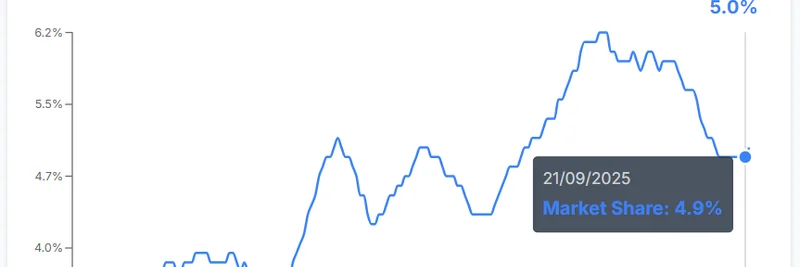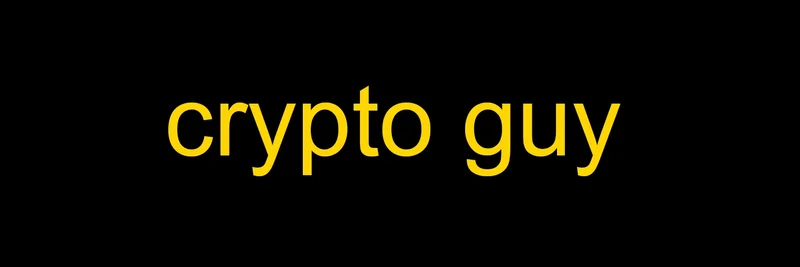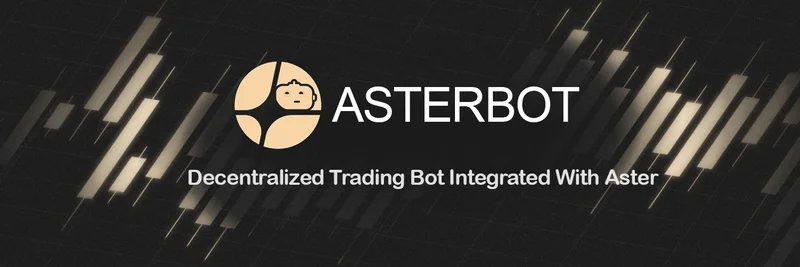In the fast-paced world of crypto trading, where decentralized exchanges (DEXes) are challenging the old guard of centralized exchanges (CEXes), a recent tweet from @0xkyle__ has sparked some intriguing discussions. The post points out how CEXes might not even need to lift a finger as perpetual DEXes—often called perp DEXes—battle it out among themselves, potentially fragmenting their own market.
For those new to the lingo, perp DEXes are platforms that let you trade perpetual futures contracts (think endless bets on asset prices without expiration dates) in a decentralized way, all on the blockchain. No middlemen, no KYC hassles, just pure on-chain action. Hyperliquid, one of the frontrunners in this space, has been making waves with its fully on-chain order books. You can check them out directly on their official platform.
The tweet itself reads: "CEXes don't even need to do anything tbh. They can just let the Perp DEXes eat themselves alive while the CEXes continue to monopolize. Classic mercenary liquidity hunting for airdrops. The light at the end of the tunnel is that value accrues to the best at the end of the day." Accompanying this is a telling chart from HYPE FLOWS, showing Hyperliquid's market share trajectory against aggregate CEXs.
Breaking Down the Chart
Looking at the graph, Hyperliquid's share starts around 3.2% back in late March 2025, climbs to a peak of about 6.2%, and then dips to 4.9% by September 21, 2025. It's based on a rolling 14-day average, covering the last six months. This rollercoaster reflects the volatile nature of crypto markets, but @0xkyle__ suggests it's more about internal competition than anything else.
The rise likely came from Hyperliquid's innovative features attracting traders seeking better liquidity and lower fees compared to traditional CEXes like Binance or Coinbase. But the decline? That could be due to a flood of new perp DEXes entering the fray, each vying for a slice of the pie with promises of airdrops—free token giveaways to incentivize users and liquidity providers.
The Cannibalization Effect in Perp DEXes
As one reply to the tweet notes, this mirrors the early days of Uniswap, where a bunch of DEX forks popped up, only for most to fade away while the original (and a few niches like Curve) dominated. "There was always going to be a wave of perps to follow HL," says @Pickle_cRypto, referring to Hyperliquid. "It's just Uniswap all over again, with many vying for their customers. Then everything settled back to uniswap, with some niche products taking a slice."
This "mercenary liquidity hunting" @0xkyle__ mentions is spot on. Traders and liquidity providers jump from platform to platform chasing the highest yields or airdrop rewards, diluting volume across multiple DEXes instead of consolidating it. Meanwhile, CEXes sit pretty with their established user bases, regulatory compliance (in some cases), and seamless user experiences.
Even CZ, the former Binance CEO, has chimed in on similar topics, calling perp DEXes the future—but as another reply points out, that doesn't mean they'll dethrone CEXes overnight. User experience on many DEXes still lags, with clunky interfaces and higher gas fees during network congestion.
Implications for the Broader Crypto Ecosystem
So, what does this mean for the crypto world at large? For one, it highlights the maturation of DeFi (decentralized finance). Competition is healthy—it drives innovation, like better risk management tools or integrated spot trading. But it also risks fragmentation, where no single DEX gains enough traction to truly challenge CEX monopolies.
Value, as the tweet optimistically notes, will eventually flow to the best platforms. Hyperliquid, with its strong tech foundation, could rebound if it differentiates itself further. Maybe through deeper integrations with meme token ecosystems or enhanced mobile trading.
How This Ties into Meme Tokens
At Meme Insider, we're all about meme tokens—the wild, community-driven coins that thrive on hype and virality. Perp DEXes like Hyperliquid are crucial here because they allow leveraged trading on volatile assets, amplifying the meme magic (or mayhem). But with market share slipping due to competition, traders might find liquidity thinning out, leading to wider spreads and slippage on meme perp trades.
If you're hunting for the next big meme, keep an eye on which DEXes are winning the liquidity wars. Platforms that offer seamless perp trading for tokens like DOGE derivatives or emerging Solana memes could become go-tos. And remember, while airdrops are tempting, sustainable value comes from real utility and community stickiness.
For the full context, head over to the original tweet and join the conversation. What's your take—will perp DEXes unite or continue to divide and conquer themselves?




